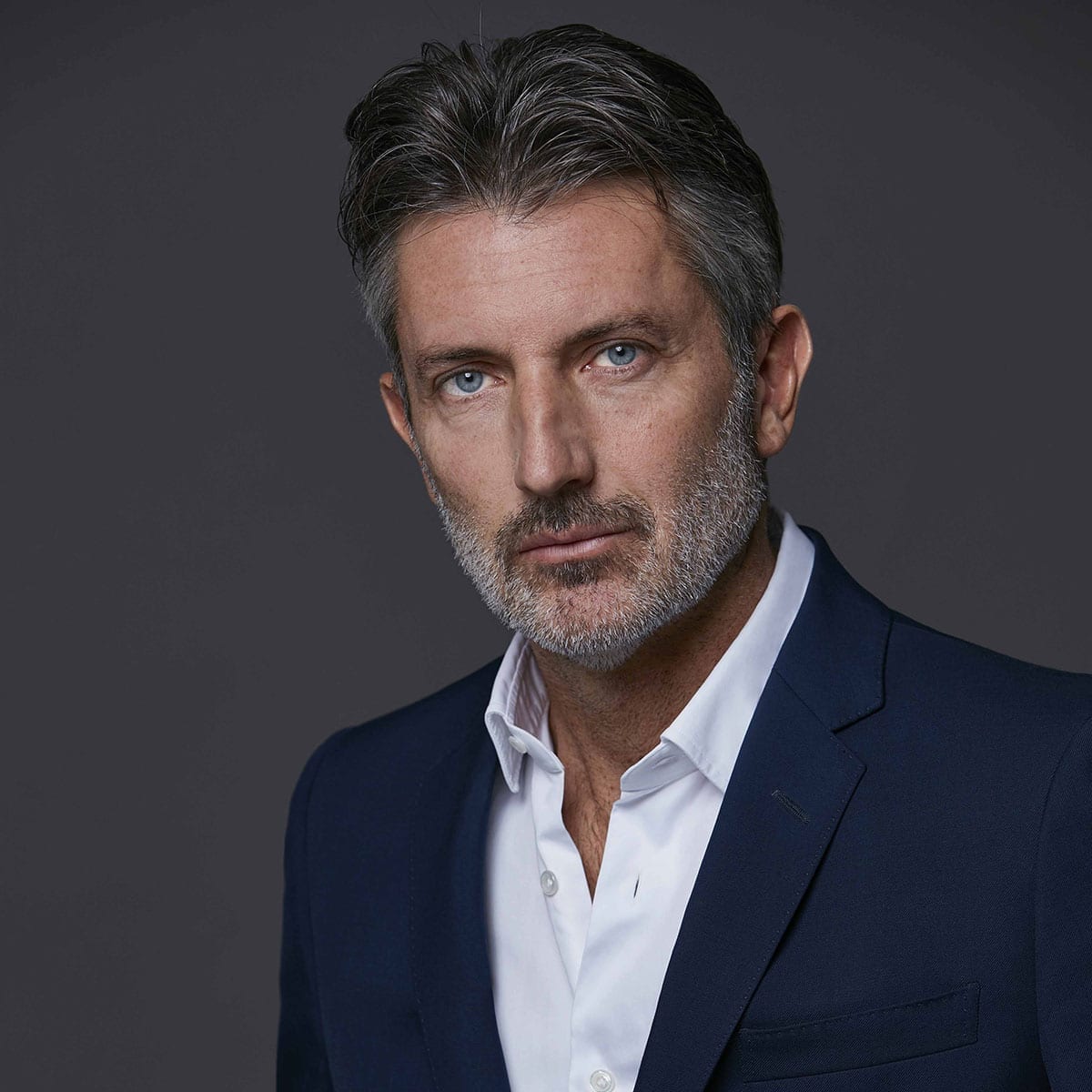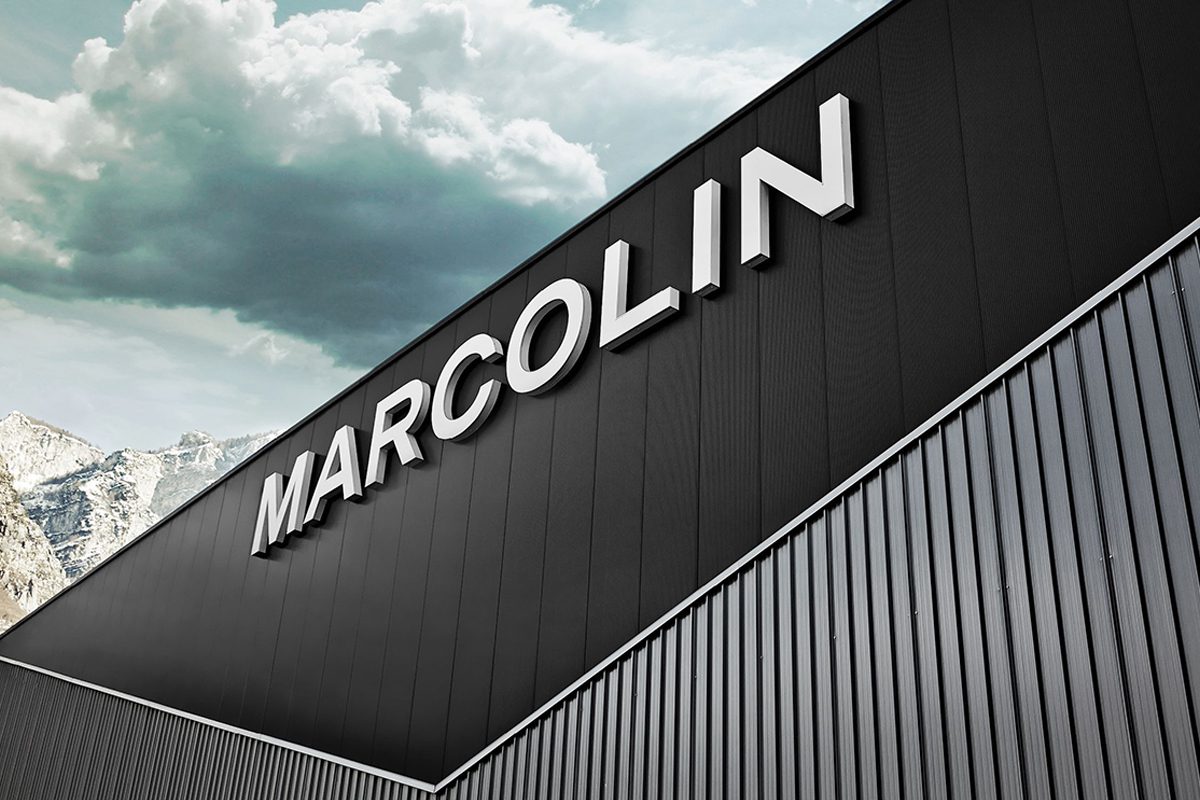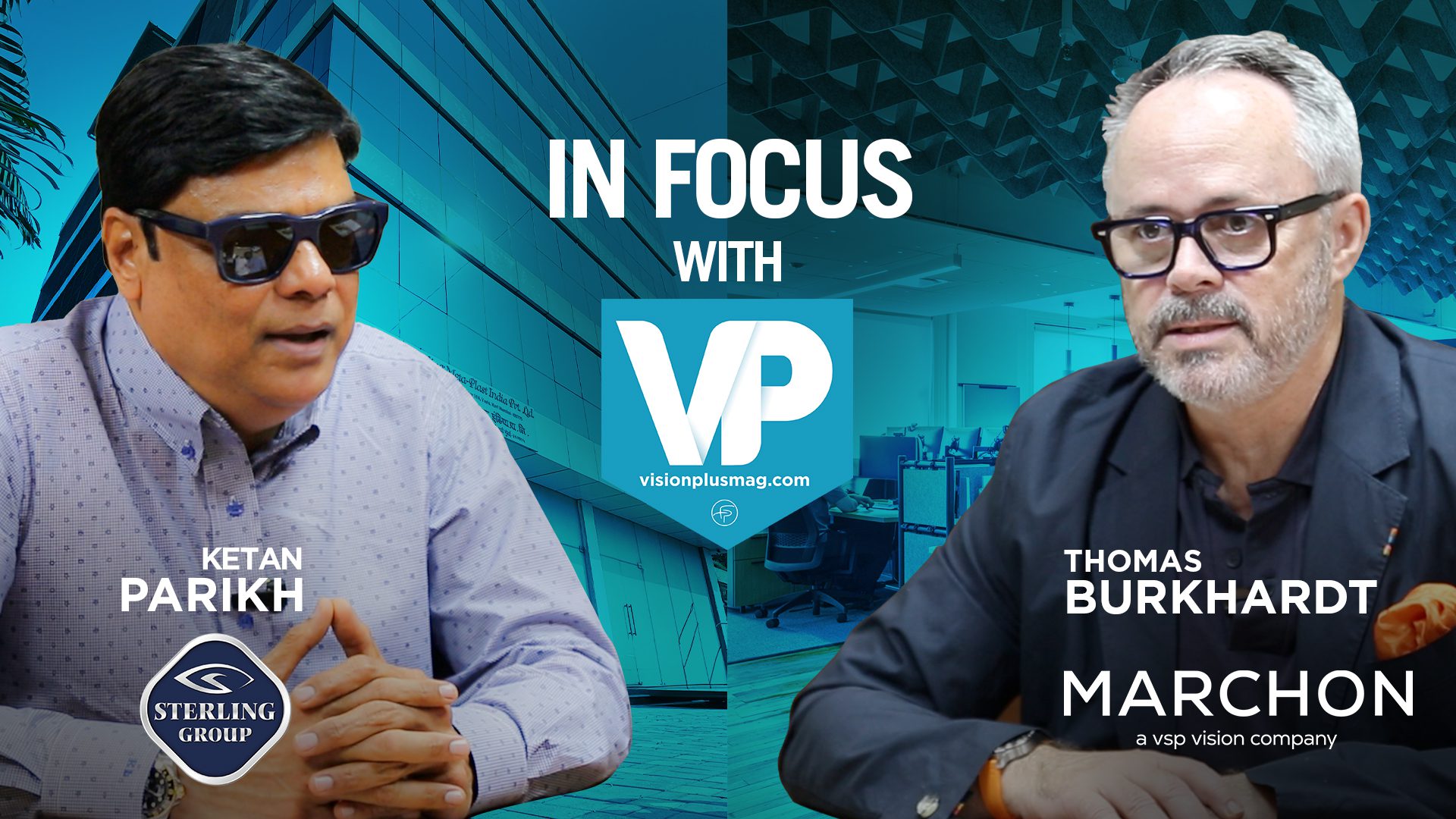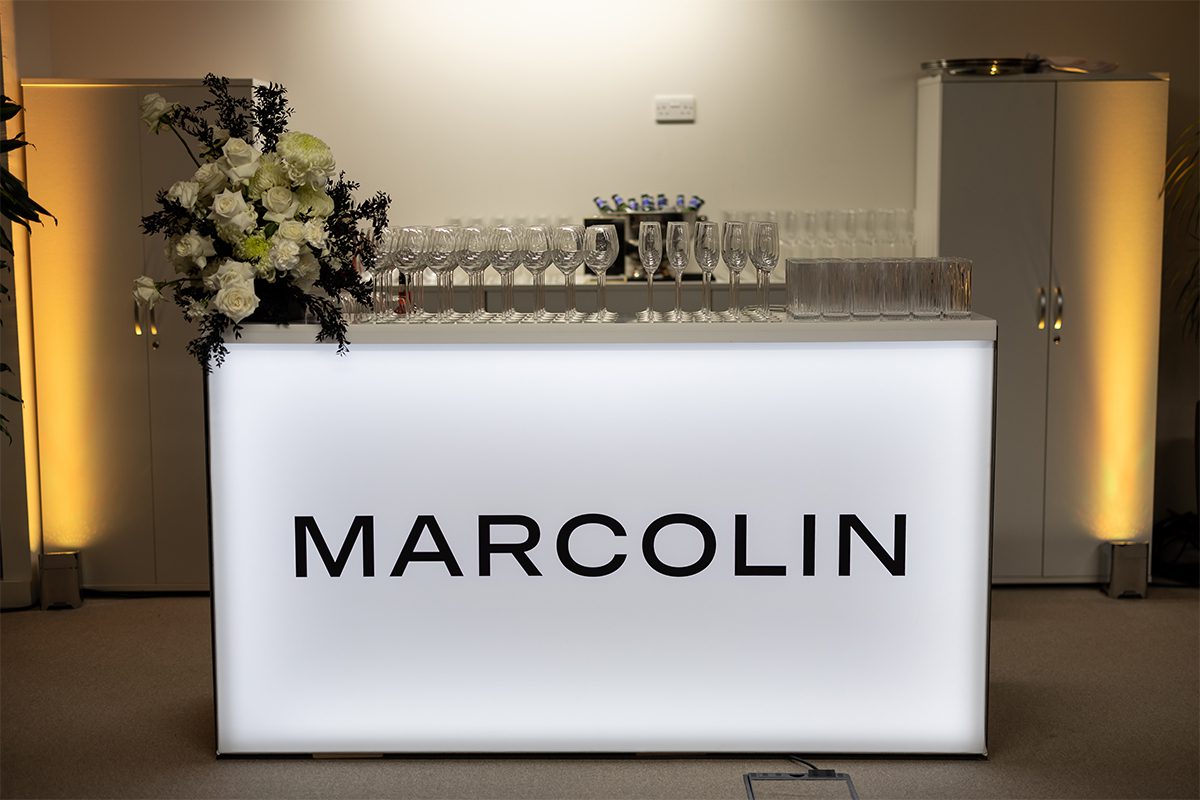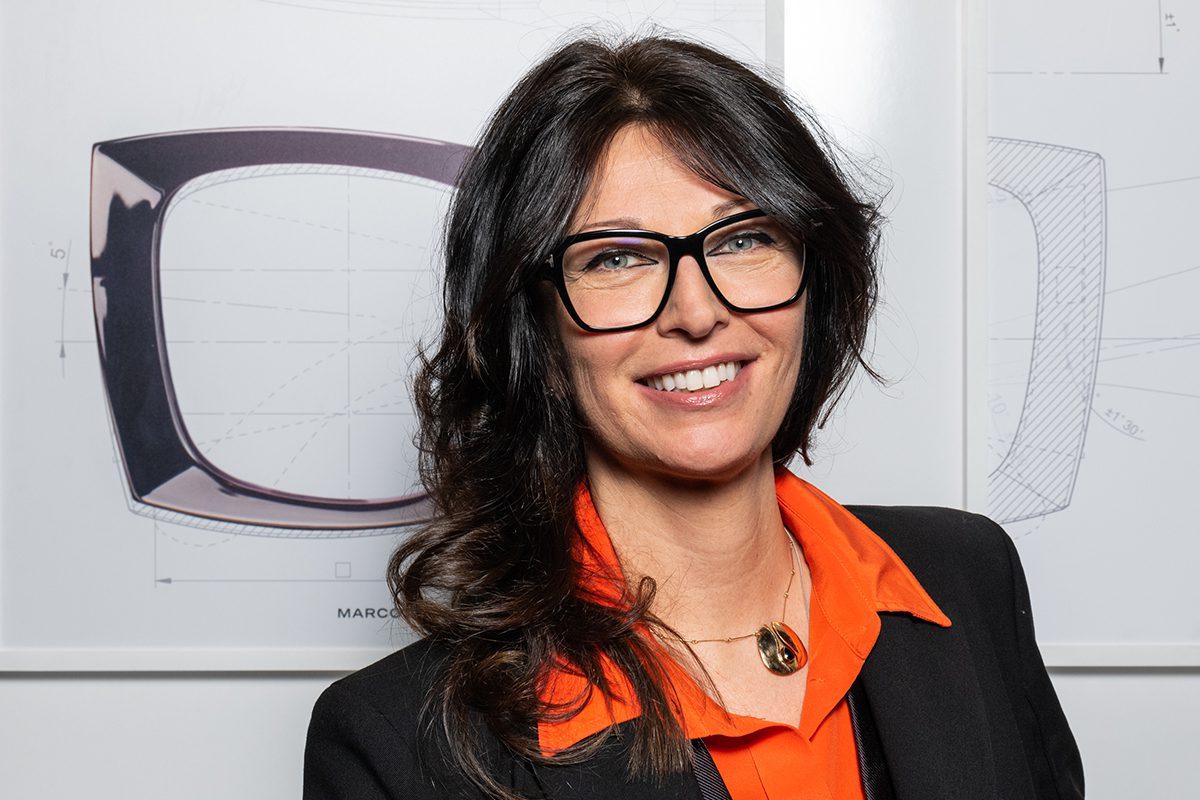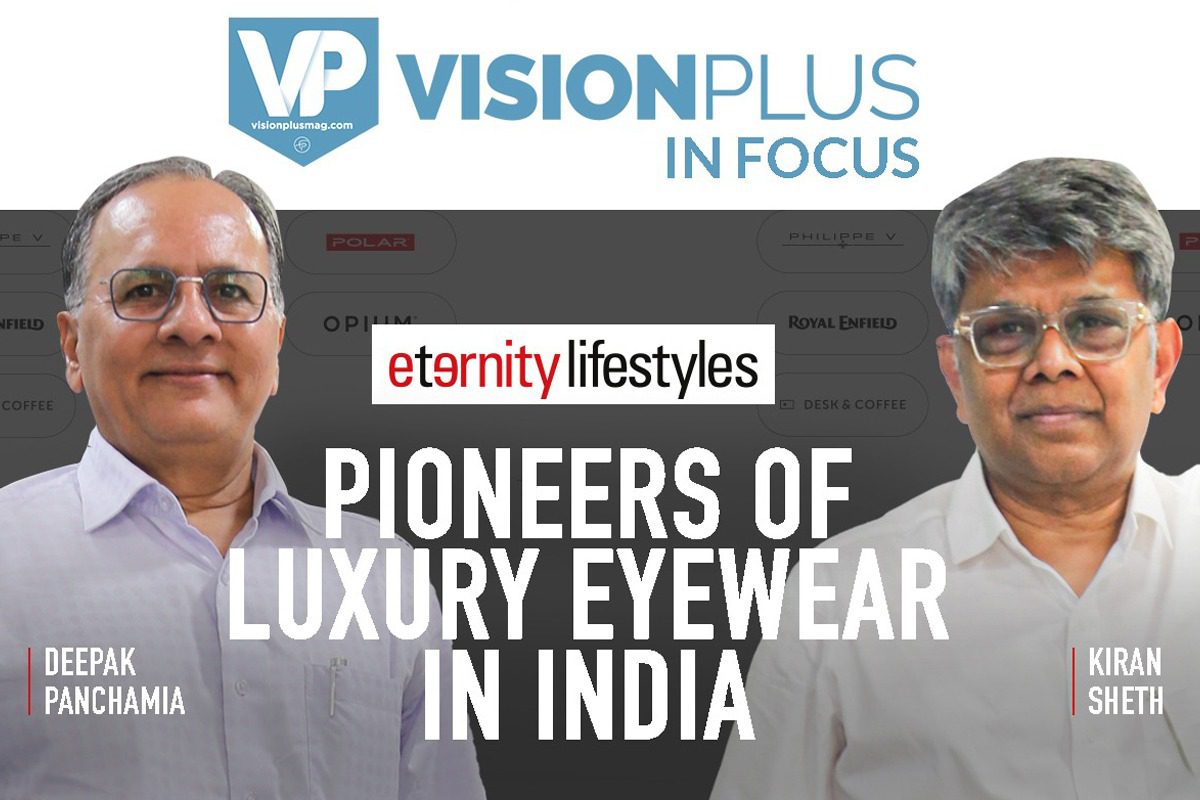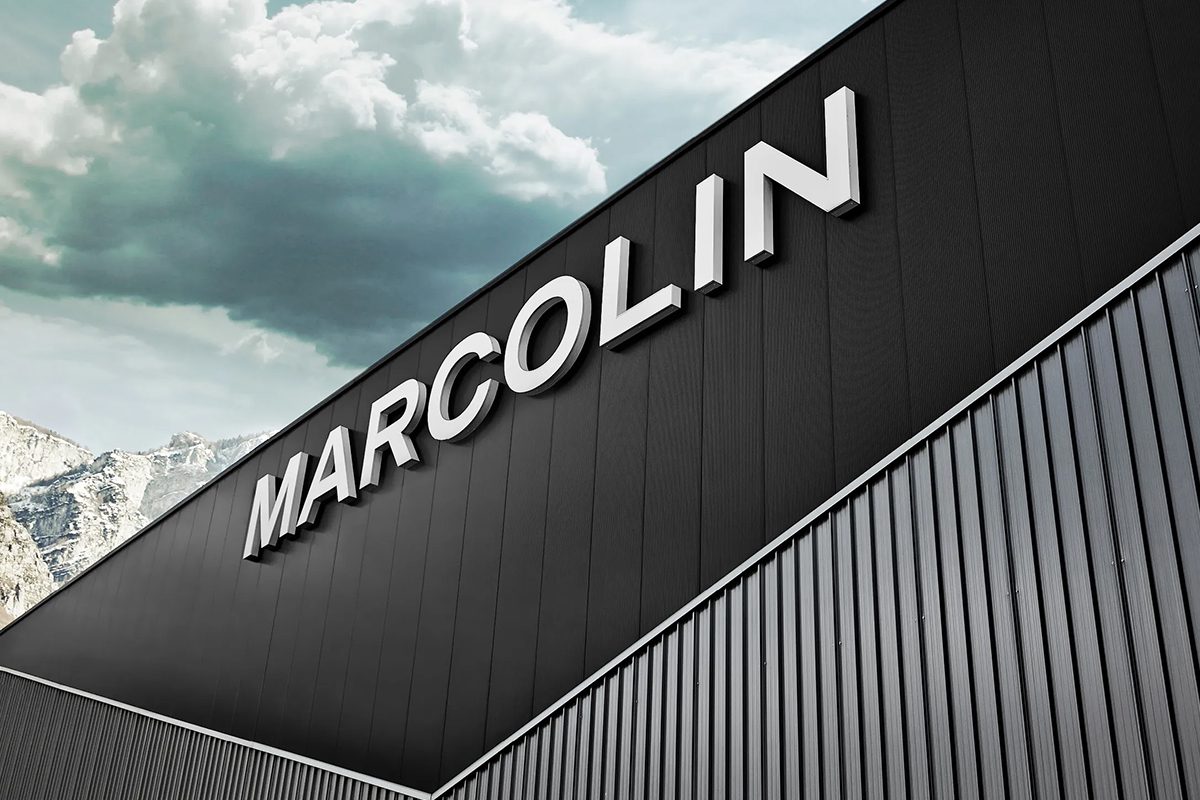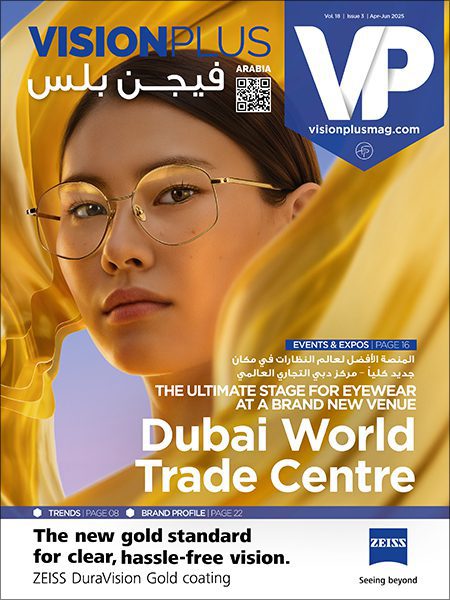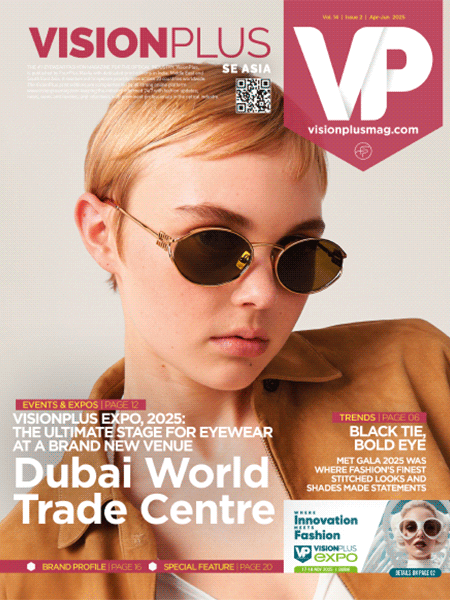Massimo Renon, CEO, Marcolin Group and Bhuwan Bahuguna, General Manager, Marcolin Middle East share their insight about the global plans that Marcolin Group has and also a bit of the Middle East perspective
Marcolin Group is known for its expertise, excellence and attention to detail in the eyewear industry. They have been creating, manufacturing and distributing eyewear for almost 60 years. Marcolin Group believes that every eyewear should be desired and should represent the highest expression of individual taste and aesthetics.
VisionPlus (VP): You have been a part of
Marcolin Group for almost 3 years, being the
CEO for close to 2 years now. How has the
journey with Marcolin Group been so far?
Massimo Renon (MR): Well, I would say that the journey has been very short. Marcolin Group has been a great company and it’s always been well-managed. A fantastic job was already done before my arrival so it was pretty comfortable for me to take the lead to try and bring it to the next level.
I have been a part of many different eyewear companies before Marcolin Group, so I am well aware of what’s out there and this helps me recognize that what we have at Marcolin Group is unique and precious.
Competence, skills, dedication, passion and most importantly people like Bhuwan Bahuguna are immersed in its DNA, making it a great company.
VP: Have you achieved
what you planned to
achieve as CEO?
MR: Given the fact that I am not very easy to satisfy, that’s difficult to answer. Our main accomplishment has been running the commercial (sales) side and achieving our targets. I strongly believe that we did and are still going to step it up. There are so many things to do in terms of improving the backbone of the company. There are the digital and technological side, the production plan and plenty of things that we can work on to improve our performance as a team.
Recently we have directly entered into markets like the Middle East through fantastic partners like Ramesh Prabhakar and the team lead by Bhuwan Bahuguna since April 2017. We started doing joint ventures with local partners in 2014 in China and Russia, while in Mexico in April 2018. We entered in the Asia Pacific region with a direct presence in Hong Kong and in Singapore. So many things are happening on the commercial side.
VP: Any updates on the Marcolin Group’s current portfolio? Anything new we should be looking forward to?
MR: Recently we launched eyewear in collaboration with Adidas. Adidas is a global giant brand worth 23 billion euros and is the number one brand in China, globally it’s the second most popular brand, in terms of sporting goods. And the fact that they wanted to join forces with us for eyewear is fantastic.
We produce, develop and design Adidas Originals mostly for lifestyle and Adidas Badge of Sport for more technical performance. Adidas Originals and Adidas Badge of Sport are now being launched, and their acceptance in the market has been great so far. In terms of projections, we are planning to make Adidas the third most important brand of the company after Tom Ford and Guess.
Last November 2019, we signed an exclusive worldwide licensing agreement for the design, production and distribution of sunglasses and eyeglass frames for BMW, BMW M and BMW M Motorsport labels.
VP: How do you see the online market for eyewear affecting the opticians?
MR: Online shopping is definitely growing but I think that it is very difficult to sell prescriptions online and it’s mainly sunglasses that can be sold online. When it comes to eyewear it’s important for the customer’s experience to try it before purchasing so it’s not really easy to sell eyewear online. But yes, it is a phenomenon we want to adapt in two different ways. Firstly, we do not have and will not have an e-commerce website. So we will never be competitors for our customers.
Secondly, we have developed very strict criteria that all the online providers that we are selling to will have to comply with. They will have to comply with respecting a certain level of pricing and not compete with our customers. The service level has to be of the same quality that we provide. For us, it is not a phenomenon to fight, it is an opportunity but we need to ensure that we are in control of it.

VP: A recent phenomenon where because of disruptive marketing methods online, prominent media have started promoting sales using their platforms. Do you see some kind of a meeting point where media, instead of being just media will start selling someday?
MR: I think it is an interesting experiment. Looking at this, I honestly do not know what the future will be. The consumer is on a journey right now, he is so dynamic and constantly changing that it is very difficult to predict.
A few months ago, I was in China and was shown a Korean influencer who posted a story on Instagram with a lipstick. And he helped sell over 1.4 million lipsticks in 8 minutes via Instagram. These are the methods for selling millions of units online during the sale period of December and January. So the media angle is interesting today, but it’s only interesting till something else that’s more interesting comes up.

VP: What is Marcolin Group’s basic guiding principle, that is common across all its markets?
MR: The first principle of the Marcolin Group is to have a fair relationship with our customers. We do not make claims about having the best portfolio of products, the best store in the market or the best service in the market. However, we are good at all these things.
For instance, in some country, we may have the best product while in some other we may have the best store, but one thing that is a common differentiator for us in all regions is the fair relationships that we emphasize on, with our customers. We do not compromise our relationships.
For instance, if we sell a Tom Ford at a certain price, it is the same for all. If we hear of a complaint we ensure it’s fixed and most of the times, it’s not because of what we did. We try to be consistent with the payment and quality. For us, it is very important what our customers think as we want them to be our long-term partners. They too want to be our partners because they realize that Marcolin Group aspires to ‘be the number-one alternative to Luxottica and the best eyewear player to work with’.
For places like India and the Middle East, relationships are very important and people value a relationship more than just profits. For the Middle East, Bhuwan Bahuguna is probably the best business colleague we could ever have. The customers trust him and that’s something very important for us, the trust of our customers.
 VP: If you were to list down the top three brands of Marcolin Group, which would they be and why?
VP: If you were to list down the top three brands of Marcolin Group, which would they be and why?
MR: That’s a difficult one to answer as it is like a family of brands. They are like different kids and relatives but we love all of them. If you had to prioritize them, then Tom Ford could be number one and Guess is number two followed by Moncler Lunettes, Atelier Swarovski, Timberland or Adidas now.
Some of them are more successful than the others but the most important thing is to make sure that they all have their identities intact.
VP: Has losing Montblanc affected Marcolin Group?
MR: Whenever you lose something, whether it is a brand in a portfolio or a partner or a friend you discover hidden energy. You realise that there is something lacking and you have to find a way to figure out how to recover it and find opportunities. We were expecting this, but I think our reaction was incredible. Because if you are able to cross one year with a financial result better than last year, when we had Montblanc, it means that not only did we recover but we also overcame the loss.

VisionPlus (VP): Coming to you now, Mr Bhuwan Bahuguna, due to the recent global economic scenario, do you see the Middle East consumer changing from luxury to fashion or value?
Bhuwan Bahuguna (BB): I believe that the Middle East market is a very special market. It does not change on the basis of needs but more because of sentiments. If things are positive at home,
the market is always good. However, if a little negativity creeps in, demand tends to go down. So, I am not worried or afraid about the current challenges which are basically sentiments-related and not need-related. I would say that once the sentiments change, the market will bounce back.
VP: Earlier everyone used to think that if it is an expensive product, go to Dubai to sell it because somebody will buy it. Luxury was king, but do you see that changing?
BB: Luxury has not reduced but the demand for value products definitely has gone up. And this has more to do with demographics. Let’s take the example of Saudi Arabia.
One needs to understand that the market is very young. It has a population of 30-34 million people, of which 24 million are locals, with an average age of 24-25 years. And with this, there’s a transition of people from the middle class to upper-middle class. This shift has generated a huge demand for entry-level products like Guess and Timberland and these products are currently filling in the gaps. So I wouldn’t say that the luxury market has reduced but yes there’s a larger requirement for entry-level products.
VP: Adidas is a good addition to the company but in terms of sports brands, why are there no sports brands in your portfolio?
MR: The reason for that is very simple. In the Middle East, we are not as sports-driven as Europe or America. In developed countries, there’s a huge awareness of sports-specific eyewear products.
So, you know that for skiing there’s different eyewear and for running or for cricket, there’s specialized eyewear. In the Middle East, the awareness is building up and we feel in another 2 to 3 years, this category will see a huge transformation.

